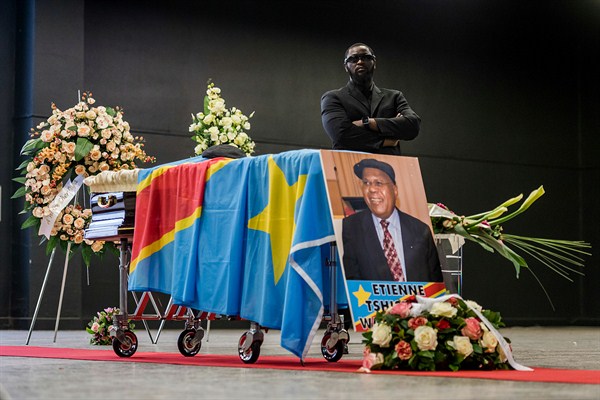KINSHASA, Congo — Since the Democratic Republic of Congo secured its independence in 1960, its people have become accustomed to living under unstable or dictatorial governments, but they entered 2017 especially unsure of where their country stands. At the heart of their uncertainty is the continuing refusal of President Joseph Kabila to clarify his long-term ambitions. But the death of a longtime opposition leader last month has only added to the confusion.
Many Congolese remain convinced that Kabila aspires to a third term, currently forbidden by the constitution. Several of his influential supporters have openly advocated for a referendum that would remove term limits. In public and private, however, others close to Kabila insist he isn’t motivated by a desire to cling to office, but rather to create conditions conducive to Congo’s first democratic transfer of power.
It came as no surprise that Kabila didn’t step down on Dec. 19, the day his second term expired, or that he would continue as head of state into 2017. This had been clear ever since it became apparent that the presidential election originally scheduled for last November wouldn’t take place on time. Last May, the pliant Constitutional Court assented to Kabila presiding over the country during this limbo period, ruling that he must remain in office until he’s replaced by an elected successor.

